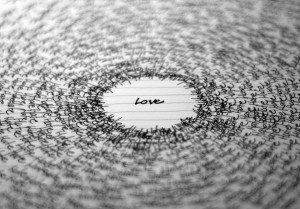 A few weeks ago, Gustavus students woke up to a shocking email describing a hate crime that happened on campus. Upon reading, I felt something that I wouldn’t have expected – guilt.
A few weeks ago, Gustavus students woke up to a shocking email describing a hate crime that happened on campus. Upon reading, I felt something that I wouldn’t have expected – guilt.
I did not, nor would I ever, participate in anything of the nature. But I couldn’t shake the feeling that I was almost responsible for the incident.
In my mind, it showed a mentality of “if you’re not with us, you’re against us,” essentially equating inaction with active collusion. Past this, I had no idea what was going on.
My next emotion was anger; a kind of anger that wasn’t even aimed at anyone in particular, just the anger of uncertainty.
I didn’t know what happened or what was going to happen. All I knew was that an act of hate took place on this campus.
For some reason, I thought there was going to be a witch hunt for the perpetrators of the crime. Not because someone said so, but because the investigators said nothing at all, meaning that we were not provided with enough specifics about what the school was going to do about the action, and only informed on the incident itself.
This put the crime in a vacuum, and then placed the incident on the center stage of Gustavus, effectively blotting out the good that can happen on our beautiful hill. For me, all of the love that I have seen here seemed to be tarnished by one event.
The hate crime on this campus has been very difficult to get past. As a college, we view ourselves as being entirely progressive, but this act has shown that not all of us are keeping entirely within the beliefs of the majority. In the words of an unnamed student, “we still have a lot of assholes on this campus.”
While I believe that the act was horrible and reprehensible in nature, I still strongly disagree with that statement, which essentially brands the majority of students on the grounds of an individual act. The act itself spawned more hatred and fear in other people, and showed that hate breeds hate.
Even though we may claim to be seeking justice, because we believe in absolute tolerance and acceptance, we in turn become the hateful. In the effort to preserve our values, we violate the fundamental tenets of our devotion to affirming the dignity of all people.

After reading the email again, I realized that the investigators were targeting my conscience. Now, of course, this is to encourage the perpetrator to step forward, but a sudden sense of realization washed over me. Even though something bad and hateful took place on this campus, we were determined not to be fractured by the actions of a few, but to take the initiative to lift up our community as a whole. Blind justice is no justice at all. We can’t go around trying to find someone to blame for the sake of our concept of justice, revolving around a system of an eye for an eye and a tooth for a tooth. In the end, it lays out a pattern for people to follow, and the pattern turns out to be more like a hamster wheel.
Hatred is not only harbored by the individual who committed the crime, but also the people who claim to want justice badly enough to simply find someone to point a finger at. That is hatred.
The idea that “there are a lot of assholes on this campus” is one that needs to be broken if we are going to grow. We cannot suppress it by ignoring the incident, yet we can’t sensationalize it by allowing this crime to define who we are as a community.
The hate crime is something that has the potential to fracture Gustavus or to lift it up. Groups on campus such as Q & A, in collaboration with the Chaplains’ Office, have put on events and initiatives to emphasize that we together compose Gustavus, such as the rainbow Sabbath, in which students created a prism of diversity.
We are currently presented with a choice: to repeat the mistakes of the past or to grow and realize that the only force that can mend wounds of hatred are the bonds of love that we can share with one another.
At the end of the day, the goal should not be to run around trying to find someone to blame by linking them to the crime by the slightest of evidence.
Rather, a better goal is to emphasize and reiterate that we are not a perfect community, but by God, we are trying our best. We will love one another to the best of our abilities and accept that we are all human, warts and all, and this is how we will grow from this incident.
Personally, I can’t think of a better thing to do.